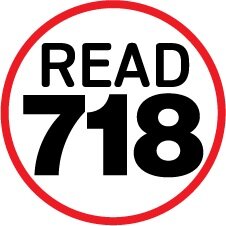What We Do
Mission History What We Do How Are We Different? Who We Serve Curriculum Impact
Individualized Reading Instruction
No two readers are exactly alike and if a student is struggling with reading, they may not be getting the instruction they need. Whether the child has difficulty reading unfamiliar words, comprehending what is read, struggles with vocabulary or simply is not motivated to read, the instruction they receive should build on strengths and address particular needs. At READ 718, students are taught based on where they are in their literacy development. Finding this instructional “sweet spot” is a key to helping students make real progress.
Each student’s literacy skills are assessed by our staff and a 10-week instructional plan is created for each student based on the results of the assessment. Informal assessment is ongoing to ensure that the student is progressing and responding to the instruction provided, and instruction is modified as needed. A final assessment is also given at the end of each 10-week cycle.
Positive Relationships
Building positive relationships between adult community members (volunteer tutors and staff) and our READers is central to our program. As important as it is for students to be taught the skills they need to read well, it is equally important that they develop a love for reading, that they recognize reading as an important and pleasurable activity, and that they feel part of a reading culture. Connecting young people with thoughtful, dedicated community members who motivate, challenge, and talk with them helps not just to strengthen their reading skills, but nurtures a reading life.
Practice Outside of School
Often, children who find reading to be a challenge do not read for pleasure or beyond what is required at school. Simply spending more time reading books and articles outside of school with a dedicated volunteer tutor can really have an impact on a child’s reading progress. Each week, children not only receive targeted instruction at READ 718, but also spend time reading aloud books and articles of their choice, strengthening their fluency, comprehension, and vocabulary.
The Need
Starting in 4th grade, schools expect students to transition from “learning to read” in the early grades to “reading to learn.” After 5th grade, students often receive little to no explicit reading instruction in their classrooms, and often teachers of this age group are not trained to teach reading skills. Students are expected to read and interpret texts in a variety of subject areas and genres, but often lack the skills to do so. When children who are behind their grade-level peers do not receive the instruction they need, they simply fall further and further behind. Students with poor literacy skills are twice as likely to drop out of school compared to their peers, and—as adults—are less likely to find employment and support a family. They are also more likely to require public assistance and are more likely to go to prison. Currently, approximately 65% of 3rd-8th graders in Brooklyn are not proficient in reading and approximately 35% do not have “basic” literacy skills.
READ 718 targets the population most at risk of falling permanently behind in school and aims to achieve long-term impact within our community by addressing their literacy needs.
